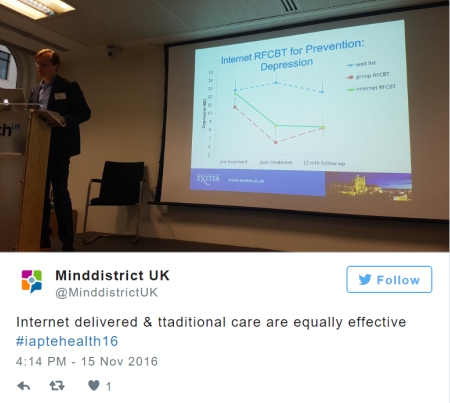
So what is worry?
Worrying is usually seen as repetitive negative thinking about events that might happen in the future. Thinking: “What if this happens?” and imagining the worst. It’s that thought that keeps troubling your mind, repeating itself and refusing to leave you alone.
It can often also roll into thoughts about the present and the past. In this, worry overlaps with rumination, which is repetitive thinking about the meaning and causes of current problems, feelings and symptoms, often focused on past and present losses and difficulties. Many people would recognise this as ‘dwelling on the past’ since there is a tendency to mull over events that have happened already. Furthermore, this is a passive way to deal with feelings and doesn’t usually lead to problem-solving.
Both worry and rumination are common in anxiety and depression, and are hard to separate when someone is repetitively thinking over difficulties as negative thinking about the past can lead into negative thoughts about the future and vice versa.
It’s the reason you’re staring at the ceiling at night unable to fall asleep and it’s what makes you doubt your actions and choices: worry.
The link between worry, depression and anxiety
Repetitive negative thinking (RNT), such as worry and rumination, has been found to predict the onset and maintenance of anxiety and depression. This has led to suggestions that targeting rumination may be a good way to prevent both anxiety and depression. Hence a clinical trial was conducted by Topper, Emmelkamp, Watkins, and Ehring (published in Behaviour Research and Therapy 2017) to test the feasibility and efficacy of a preventive intervention targeting RNT in adolescents and young adults who were prone to rumination and worry.
We have been working together with Professor Ed Watkins on a series of innovative research projects looking at treating rumination using internet treatments. Hence we are thrilled about the results of this first RCT that focuses explicitly on reducing RNT when investigating a preventive intervention for depression and anxiety.

The power of prevention: a promising RCT
Two versions of the preventive intervention were tested; one version was delivered in a group therapy format and the second version was delivered via the Internet platform. In addition, participants were also randomised to a wait-list control group, who received usual care, which is typically no intervention. It was hypothesised that both versions of the rumination treatment would reduce worry and rumination as well symptom levels of anxiety and depression. The interventions were selectively offered to young people (aged 15-22) with elevated levels of worry and rumination.

It was found that both versions of the intervention reduced the tendency to engage in repetitive negative thinking as well as the symptom levels of anxiety and depression. Moreover, young people receiving the interventions were 2.5 times less likely to report symptoms consistent with a diagnosis of depression or generalised anxiety disorder over the following twelve months, relative to the wait-list control group. There was no difference in outcomes between the group and internet treatments indicating that internet prevention can work as well as a face-to-face intervention.
These results clearly emphasise the positive effect of the preventive interventions on RNT and depression and anxiety, and indicate its potential value for clinical practice. Professor Ed Watkins explained that his motivation is to construct better interventions by using good science that helps us to understand the active mechanisms of therapy, in order to build better psychological treatment. We share this vision and are excited to continue our research journey with Professor Watkins. To conclude, the findings of this randomised controlled trial have implications for intervention and prevention for common mental health disorders.
Read the full article.
More information
Do you want to know more about how technology can support behavioural change? Or do you want to discuss the topic further?
Please contact us or give us a shout on Twitter @Minddistrict @ERWatkins2. Stay tuned, we will share our journey and exciting outcomes via this blog series.
The University of Exeter is part of Minddistrict's Global Research Network. Read more about ehealth research
